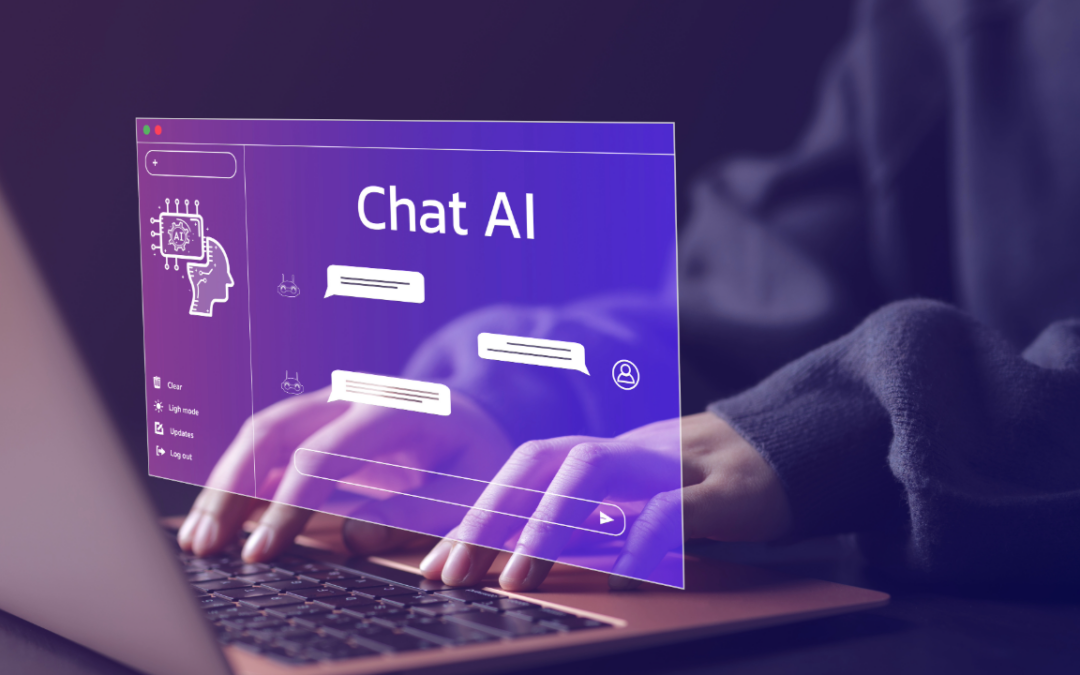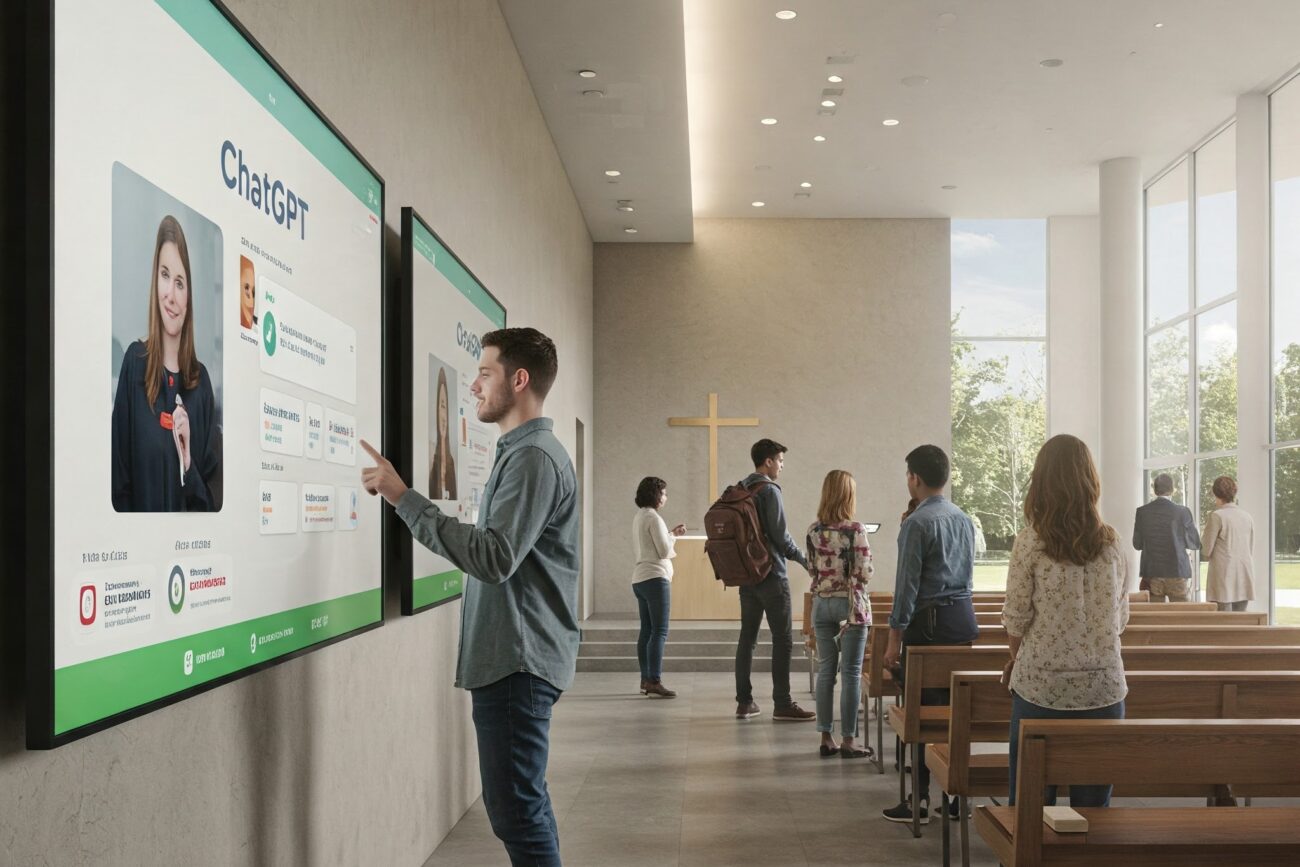1. AI is a Tool, Not a Replacement
AI can assist churches in many ways, but it should never replace human wisdom, spiritual discernment, or the guidance of the Holy Spirit. It can automate tasks like scheduling, managing emails, and processing donations, allowing leaders to focus more on ministry. AI can also help with outreach, providing personalized communication and breaking language barriers.
However, AI is not a spiritual guide. It is a man-made tool that depends on human programming and data. It should only be used to support church operations—not as a substitute for biblical truth or divine wisdom.
📖 Biblical Foundation: “Moreover, it is required in stewards that a man be found faithful.” – 1 Corinthians 4:2
2. AI Should Never Replace Human Connection
The church is built on relationships, discipleship, and personal interaction. AI can help manage communication, but it cannot replace the value of human connection. Face-to-face conversations, prayer meetings, pastoral counseling, and community fellowship remain at the heart of ministry.
Technology should enhance these connections, not take their place. If AI is used in ministry, it should be in a way that strengthens relationships, not weakens them.
📖 Biblical Foundation: “Encourage one another and build each other up, just as in fact you are doing.” – 1 Thessalonians 5:11
3. AI Should Never Replace the Holy Spirit in Sermons
AI can assist in researching topics, finding translations, and summarizing scripture. However, it must never be relied on to craft sermons in place of the Holy Spirit. Preaching is not just about assembling words—it is about divine revelation, conviction, and spiritual authority.
The King James Bible has stood for centuries, providing reliable truth. AI, on the other hand, pulls from various sources, some of which may misinterpret scripture or include false teachings.
Pastors must always pray, seek God’s wisdom, and study scripture with discernment. If AI is used, it should only be for research—not for writing sermons that should be Spirit-led.
📖 Biblical Foundation: “For the Lord gives wisdom; from His mouth come knowledge and understanding.” – Proverbs 2:6
4. AI Should Not Shape Your Beliefs
Some people rely on AI to form their opinions, even in matters of faith. This should not be done. AI is not a spiritual authority and does not hold divine wisdom. It is built by humans and draws from a mix of sources—some trustworthy, others not.
Christians should always turn to the Bible, prayer, and godly counsel when seeking guidance. Faith is not based on algorithms or artificial reasoning but on the living Word of God.
📖 Biblical Foundation: “Trust in the Lord with all thine heart; and lean not unto thine own understanding.” – Proverbs 3:5
5. Be Transparent About AI Use
Churches should be open about how AI is being used in their ministry. Members should know if AI is generating emails, managing chatbots, or analyzing data. Transparency builds trust and ensures that AI is being used responsibly.
Leaders should also be cautious about allowing AI to influence decision-making without human oversight. While AI can provide helpful insights, church leadership should always make final decisions based on wisdom, prayer, and discernment.
📖 Biblical Foundation: “Speak the truth in love.” – Ephesians 4:25
6. Protect Church Member Data
Many AI tools process data, which means churches must take privacy seriously. Member information—emails, donations, prayer requests—must be protected from misuse. Churches should use secure systems and avoid storing sensitive data on AI platforms that do not guarantee confidentiality.
Leaders must also comply with legal data privacy standards to protect their congregation. Just as they are called to be good stewards of financial resources, they must also be good stewards of personal information.
📖 Biblical Foundation: “The prudent see danger and take refuge.” – Proverbs 22:3
7. AI in the Church Must Be Regularly Evaluated
AI technology is always changing. What seems helpful today could present risks tomorrow. Churches should regularly review their AI use, ensuring that it aligns with biblical principles and ethical standards.
Church leaders must stay informed, ask tough questions, and remain cautious about adopting new AI technologies too quickly. AI should never become a shortcut for real ministry or replace the church’s mission.
📖 Biblical Foundation: “Test everything; hold fast what is good.” – 1 Thessalonians 5:21
Conclusion: AI Must Serve the Church, Not Control It
AI has the potential to support church operations, but it must never replace the core aspects of faith, wisdom, and human connection. Churches must use AI wisely, ethically, and transparently—always prioritizing biblical truth over technological convenience.
God has called church leaders to shepherd His people, and no AI system can ever take the place of that calling.
📢 Need AI solutions for your church?
Contact Assure Studios for AI-powered church websites


